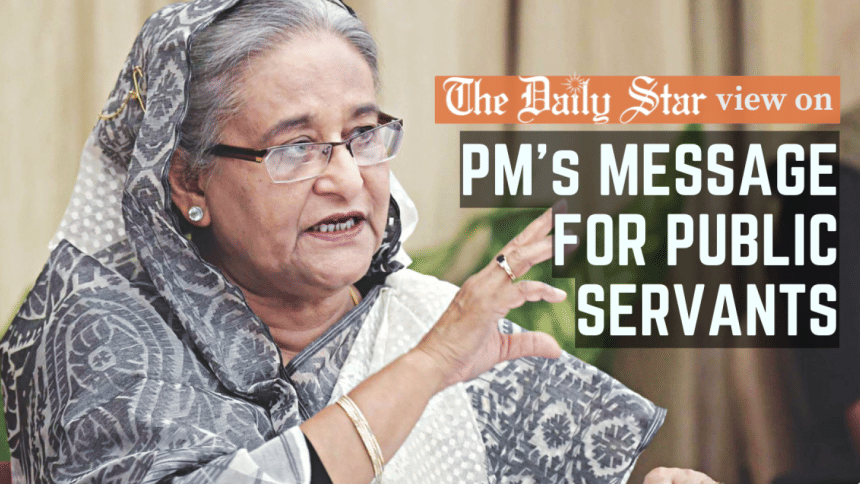Accountability, not individual choice, should guide public service

We welcome the prime minister's call for public servants to devote themselves to the welfare of the people. "All of you [public servants] are getting salaries and perks from the money paid by the common people as taxes. So, you have to work for their welfare and in their interest," she said, while speaking at a programme marking the National Public Services Day. She stressed the importance of every employee of the republic fulfilling their duties as specified in the constitution. She highlighted how her government is trying to create a "congenial atmosphere" for public servants so they can work without fear or obstacles.
There are several takeaways from her speech. While it is customary on such a day for the head of state to address public officials, in a republican government system, it is also essential to remind them, again and again, who they're really answerable to and why. Over the years, this government has been more than generous to boost their morale, through higher salaries and perks, as also evidenced by the PM's mention of a special initiative to let them purchase flats and vehicles borrowing government money. For all these benefits, it is only natural to expect superior performance from the officials.
The question is, why hasn't that come about yet? Unfortunately, today, access to public service across the administrative spectrum remains a daunting prospect, even after the digitalisation of many services. Elsewhere, we see public works and projects flounder repeatedly, without any consequence for those responsible. In case of law enforcement agencies, a growing percentage of policemen are indistinguishable from the criminals they're supposed to deal with. The criminal justice system is also crumbling, with citizens often left hung out to dry. Forget a superior performance; at this stage, citizens would settle for anything from public officials that doesn't make their life more difficult than it is.
Today, government jobs are greatly sought after by the majority of graduates, as much for the increased financial benefits as for the near-immunity that comes with the job. The problem seems to be in the highly politicised system in which public officials work, with no established accountability mechanism, and the expectation that they will somehow be impervious to its influence. The reality is, without a system of accountability – in which all responsible must take ownership of their actions, decisions, behaviour, and performance – any good or bad deed is, in the end, the outcome of individual choice. This cannot be the modus operandi of a civil service, nor can it meet the expectations of citizens.
So we urge the government to help build a strong, apolitical accountability mechanism that applies to all public offices/sectors and all levels of hierarchy, and can withstand pressure from corrupt influences. Only then can we ensure citizens' money is used to serve their best interests.

 For all latest news, follow The Daily Star's Google News channel.
For all latest news, follow The Daily Star's Google News channel. 





Comments